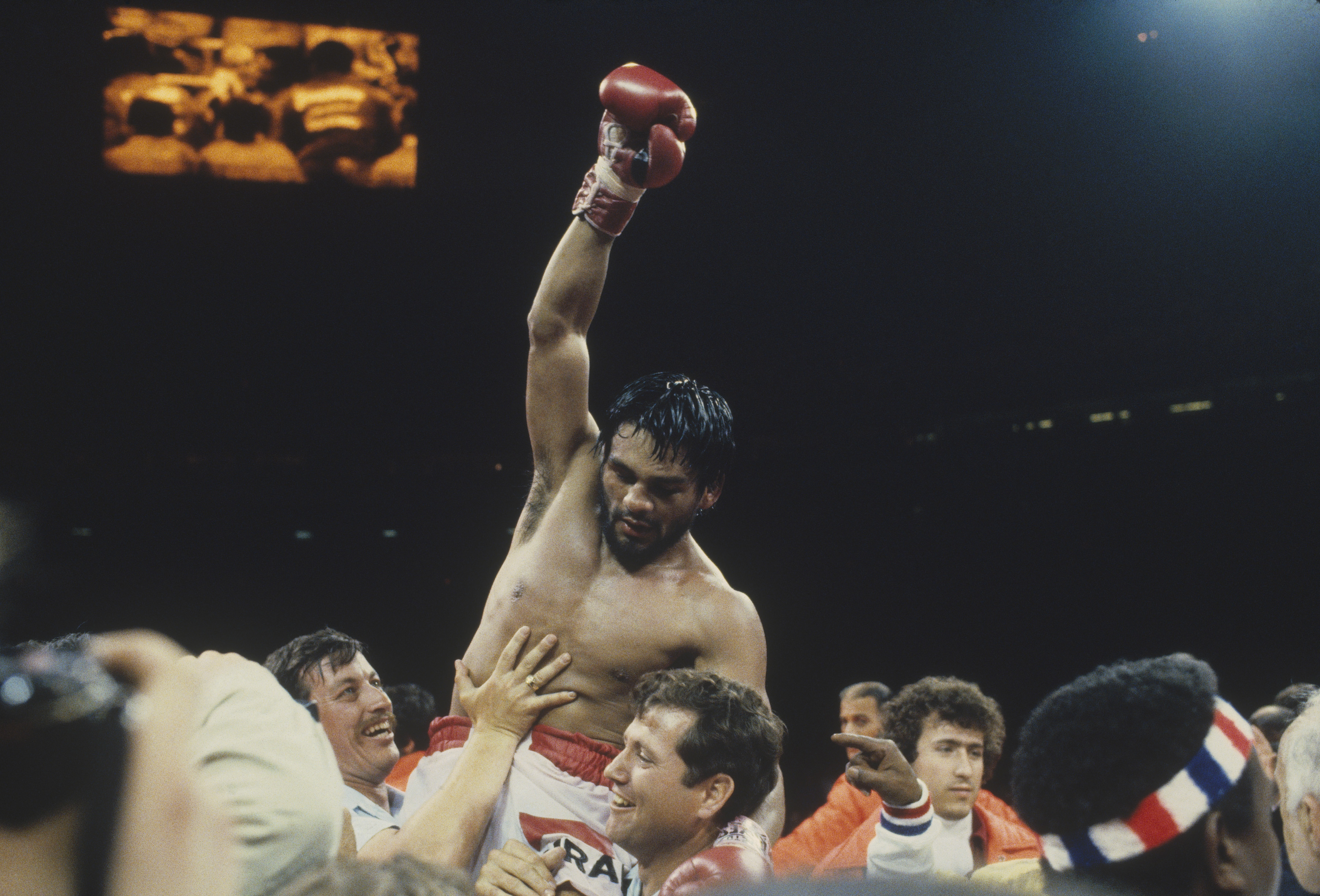4. Roberto Duran
He’s a living legend, but most of all, one of the baddest men to ever step foot in the boxing ring. The common fan may know him more for the “No Mas” debacle, but true sports fans, think of the man called “Manos de Piedra,” or “Hands of Stone,” as a devastating alloy of power, speed, technique, and braggadocio, a fighter who deserves to be in the discussion of the all-time greats.
Born to a Mexican-American marine and a Panamanian mother and raised in the Chorrillo slum of Panama City, in 1951, Roberto Duran quit school after third grade and hit the streets. In his early teens, he started boxing, emulating his brother and hoping his fists might punch a way out of the barrio. He made his professional debut in February 1968, at just 16. Duran eventually won 30 in a row before his first pro loss, and in 1972, he got his first title shot, against lightweight world champion Ken Buchanan who was a heavy favorite. Duran beat him to a pulp. It was the kind of beating that a great old pro would know how to administer.
Duran would go on to own the lightweight division for six years, but he craved more So, in 1979, he relinquished his belt and jumped to the welterweight division that offered bigger paydays and higher-profile opponents, like Sugar Ray Leonard. The fighter that would essentially become Duran’s “white whale.” David Avila, a journalist who grew up in an East L.A. boxing family, recalls the fight as a watershed moment.
“When Duran beat Sugar Ray Leonard, who was perceived as ‘America’ by a lot of the Latinos, who were subservient in everything at that time, it was huge,” Avila says. “He was a no-nonsense, take-no-prisoners kind of guy,” Avila says. “We loved him for that.”
The ups, downs and ups of the remainder of this career are well chronicled and this year became of the subject the biographical film Hands of Stone, starring Edgar Ramirez as Duran and Robert DeNiro as his trainer Ray Arcel. Additionally, Ring Magazine named Duran the fifth best fighter of the previous 80 years. In 2007, when he was inducted into the International Boxing Hall of Fame, an honor that seemed to do more than just validate his career; it officially forgave him for No Mas and allowed him once again to be his homeland’s champion he stated “My country is being inducted as well,” he said, shawled in the Panamanian flag during his induction speech. “The country where I was born, where I live, and where I will die. I’m happy, proud.”
 Photo by Focus on Sport/Getty Images
Photo by Focus on Sport/Getty Images
